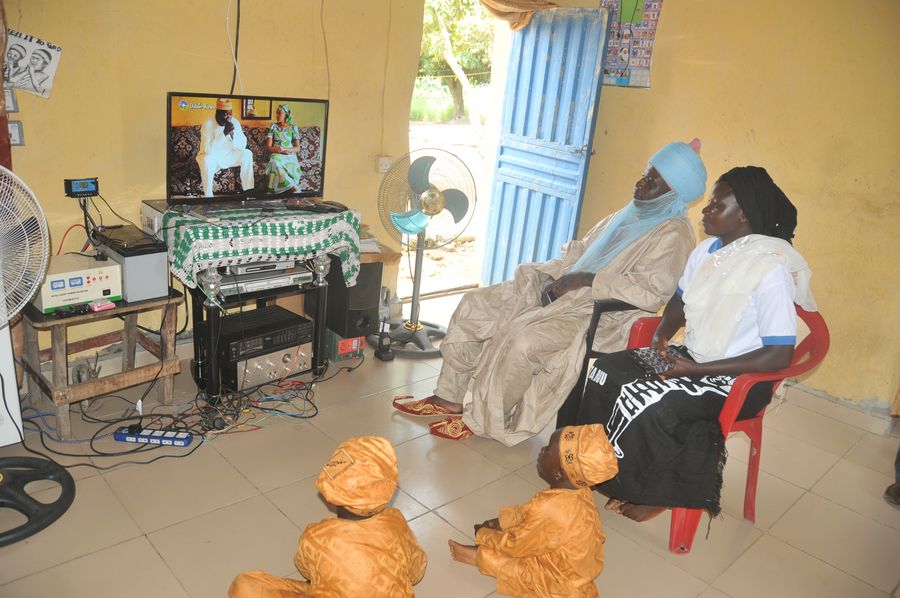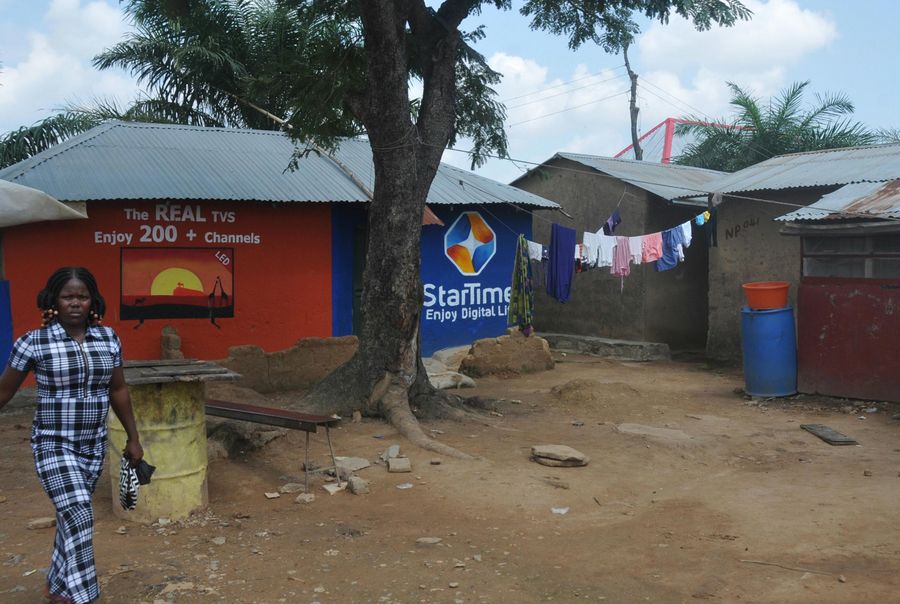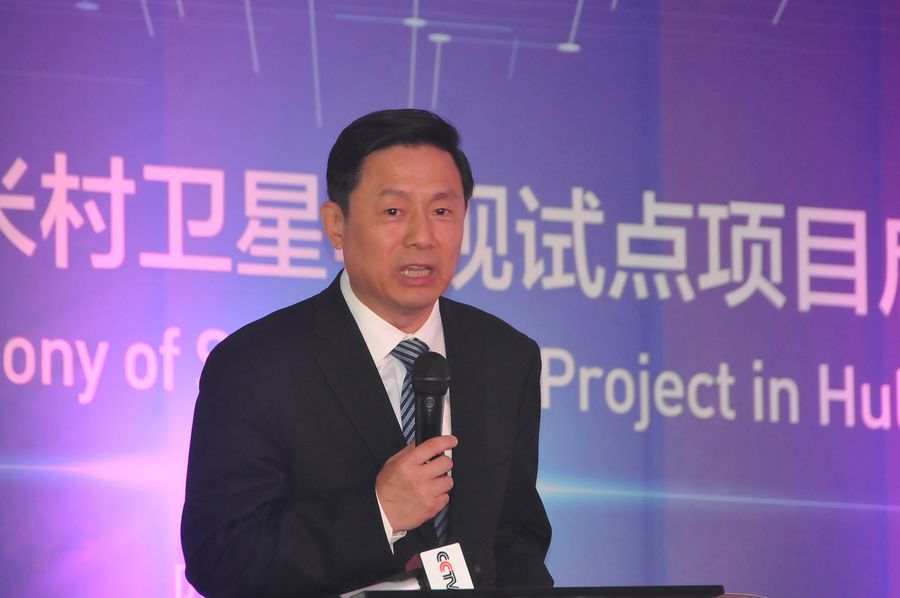Chinese pay-TV company StarTimes has completed a China-aided satellite TV project for 1,000 villages in Nigeria, and 20,000 households in rural Nigeria are to benefit from the project.
by Olatunji Saliu
ABUJA, Nov. 2 (Xinhua) -- Chinese pay-TV company StarTimes has completed a China-aided satellite TV project for 1,000 villages in Nigeria, aimed at providing digital TV access to rural communities in the most populous African country.
At a well-attended ceremony held earlier this week in Abuja, Nigeria's capital, to mark the completion of the project, the Nigerian government, as well as beneficiaries, lauded the project that acts on one of the resolutions of the Johannesburg Summit of the Forum on China-Africa Cooperation (FOCAC) in 2015, at which the Chinese government pledged to provide satellite televisions for 10,000 African villages.
StarTimes, a Chinese firm that offers home pay-TV services, was contracted to deliver the project across Africa. Altogether, 20,000 households in rural Nigeria benefited from the project.
Under the China-funded project launched by StarTimes on January 14, each of the 1,000 chosen villages in Nigeria received two sets of solar-powered projector television systems and one set of solar 32-inch digital television integrated terminal system.
This achievement is a significant milestone in the exercise of digital television service in Nigeria, said David Zhang, the chief executive officer of StarTimes in the west African country.

Residents watch TV with a satellite digital television device provided by Chinese media company StarTimes in Hulumi community, in the Nigerian capital of Abuja, on Aug. 10, 2017. (Xinhua/Zhang Baoping)
"Over the past year, we have gone across the country in the different states working with local leaders and communities to successfully implement this project," Zhang told the audience from all walks of life, including government officials and traditional rulers.
"We have experienced the different cultural aspects of the country, and all we have to report is of a warm welcome, cooperation, and goodwill," he said.
The senior executive described the successful completion of the project as "a true testament of what can be achieved in the cooperation between governments" and the input of the private sector in promoting the socio-economic and political prosperity of the economies of China and Nigeria.
In each of the 1,000 villages across Nigeria's 36 states and the Federal Capital Territory, 20 recipient families with television were also provided with 20 sets of direct broadcast satellite terminal systems free of charge.
A projector television system was also provided to each of the 1,000 villages, for viewers to publicly watch at least 21 satellite channels free of charge, including news, movies, sports, and religion, to mention a few.
Odebunmi Dokun, a member of the Nigerian parliament and chairman of the national parliament's committee on information, said the project's completion was a very unique way of solidifying the diplomatic relations between China and Nigeria.
"The completion of the project which we are celebrating today is an investment to the people because it concerns the masses and enables them to connect to the digital world. The people of Nigeria are sincerely appreciative and will continue to be grateful to China," Dokun said.
The project was executed even in the remotest villages in Nigeria, including the volatile northeastern state of Borno, where security continues to be a major challenge.

A woman walks past the poster of StarTimes in Hulumi community, in the Nigerian capital of Abuja, on Aug. 10, 2017. (Xinhua/Zhang Baoping)
In an interview with Xinhua, Oba Sunday Adewumi, a traditional ruler in Moba local government area of the southwestern state of Ekiti, said the project and its completion rekindled the hope of the locals, mostly farmers, in Igogo Ekiti, his village.
"My people back home in Igogo Ekiti are so happy. They appreciate what the Chinese government has done for us, and we will continue to appreciate them," Adewumi said.
"Knowledge is power and they learn from this. I believe that our people will continue to grow. One of the viewing centers is in a public hall, so everyone in the village has access to it," he said, noting that the new development has made the villagers converge at the town hall every day after returning from their farms, to watch their favorite television programs.
The satellite television project provides an opportunity for locals to watch digital programs with both local and international content.

Guo Weimin, deputy director of the State Council Information Office of China, speaks at a ceremony to launch the satellite TV project in Hulumi community, in the Nigerian capital of Abuja, on Aug. 10, 2017. (Xinhua file photo/Zhang Baoping)
Li Yuan, the economic and commercial counselor of the Chinese embassy in Nigeria, noted that infrastructure is the bedrock of connectivity in every society, saying China will continue to work with other parties to build a bright future for common prosperity.
With the completion of the project in rural Nigeria, "many Nigerian children will get better educational resources through the remote educational satellite programs," Li added.
At the event marking the completion on Tuesday, the Nigerian government presented a certificate of satisfaction to StarTimes for the successful completion of the digital TV project in the country. ■



